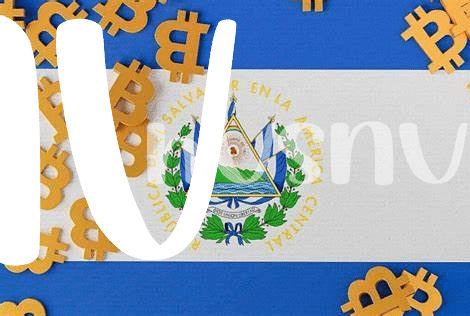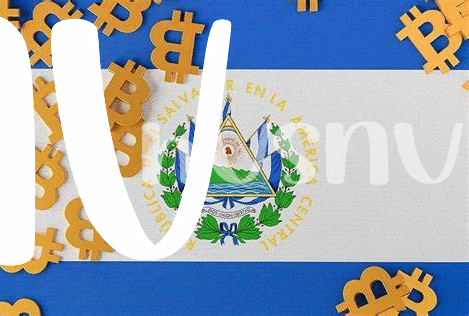Introduction to Aml Regulations 🌍

Amidst the evolving landscape of financial regulations, Anti-Money Laundering (AML) laws stand out as a critical framework aimed at preventing illicit financial activities. AML regulations require financial institutions to diligently monitor transactions, verify customer identities, and report suspicious behavior to relevant authorities. These regulations play a vital role in maintaining the integrity of the financial system by safeguarding against money laundering and terrorism financing. As countries worldwide continue to adapt and enhance their AML frameworks, the implications reach beyond borders, influencing global financial interactions and fostering a more secure financial environment.
Bitcoin Adoption in El Salvador 🇸🇻
Bitcoin’s integration into everyday transactions in El Salvador has been a significant milestone for the country and the broader cryptocurrency world. With the official adoption of Bitcoin as legal tender, individuals in El Salvador can now use it for various payments, from buying groceries to paying bills. This move has not only put El Salvador on the global map for digital currency adoption but has also sparked discussions and debates worldwide about the implications and possibilities of such a bold move. The government’s proactive approach towards embracing Bitcoin has set a precedent for other nations to consider how cryptocurrencies can be integrated into traditional financial systems, potentially reshaping the future of global commerce.
Impact on Financial Inclusion 🤝

The integration of Bitcoin in El Salvador’s economy has the potential to revolutionize financial inclusion by providing access to banking services for those previously unbanked or underserved. Through the use of digital wallets and blockchain technology, individuals without traditional banking options can now participate in the financial ecosystem, promoting economic empowerment and independence. This shift towards a more inclusive financial landscape has the opportunity to uplift communities and create new pathways for financial stability and growth.
Challenges and Opportunities 💼

Challenges in navigating the intersection of AML regulations and Bitcoin adoption in El Salvador lie in balancing regulatory compliance with the decentralized nature of cryptocurrencies. Ensuring transparency while preserving user privacy poses a formidable challenge for financial institutions and government bodies. On the flip side, these challenges also present unique opportunities for innovation in compliance technologies and trust-building mechanisms within the crypto ecosystem.
The evolving landscape of AML regulations surrounding Bitcoin in El Salvador opens doors for collaboration and knowledge exchange on a global scale. Engaging with international stakeholders can foster best practices and harmonize regulatory approaches across borders, leading to a more cohesive and inclusive financial system. By addressing challenges proactively and leveraging opportunities for collaboration, El Salvador can pave the way for successful integration of Bitcoin into its mainstream economy.
Global Perspectives and Reactions 🌏
The integration of Bitcoin as legal tender in El Salvador has sparked varied global perspectives and reactions. Experts from different countries have voiced concerns regarding the potential risks associated with this unprecedented move. Some see it as a bold experiment that could set a new standard for financial innovation, while others caution against the lack of regulatory safeguards. In the larger global context, the response to El Salvador’s Bitcoin adoption serves as a litmus test for the future of decentralized currencies and their impact on traditional financial systems.
As news of El Salvador’s Bitcoin adoption continues to reverberate around the world, governments and financial institutions are closely monitoring the outcomes. The reactions range from skepticism to enthusiasm, reflecting the division on embracing digital currencies as a mainstream form of payment. While some countries are exploring similar paths, others remain cautious, questioning the long-term implications. The global insights and reactions to El Salvador’s trailblazing stance on Bitcoin underscore the complex interplay between innovation, regulation, and the evolving landscape of digital finance.
Looking Ahead: Future Implications 🔮

As technology continues to shape the landscape of global finance, the future implications of AML regulations on Bitcoin in El Salvador are poised to unfold in a dynamic manner. The evolving intersection of digital currencies and regulatory frameworks is set to influence not only the economic trajectory of El Salvador but also serve as a litmus test for other nations navigating similar waters. This forward-looking perspective sheds light on the potential ripple effects that may emanate from this pivotal juncture, offering insights into the broader implications for the cryptocurrency ecosystem. The ongoing dialogue surrounding AML regulations underscores the need for collaborative efforts to strike a balance between innovation and compliance, shaping the contours of the financial landscape in the years to come.
Bitcoin Anti-Money Laundering (AML) regulations in Djibouti with anchor Bitcoin Anti-Money Laundering (AML) regulations in Ecuador.
